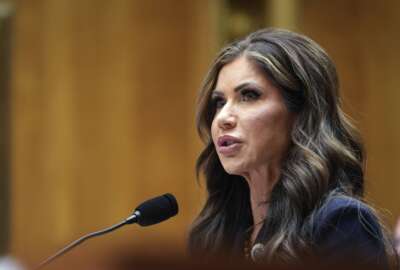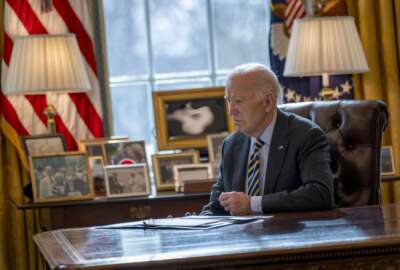Trump fires agency head who vouched for 2020 vote security
The president ousted Christopher Krebs, a Trump appointee and director of the Cybersecurity and Infrastructure Security Agency, in a tweet saying his recent...
WASHINGTON (AP) — President Donald Trump on Tuesday fired the director of the federal agency that vouched for the reliability of the 2020 election.
Trump fired Christopher Krebs in a tweet, saying his recent statement defending the security of the election was “highly inaccurate.”
The firing of Krebs, a Trump appointee and director of the Cybersecurity and Infrastructure Security Agency, comes as Trump is refusing to recognize the victory of Democratic President-elect Joe Biden and removing high-level officials seen as insufficiently loyal. He fired Defense Secretary Mark Esper on Nov. 9, part of a broader shakeup that put Trump loyalists in senior Pentagon positions.
Krebs. a former Microsoft executive, ran the agency, known as CISA, from its creation in the wake of Russian interference with the 2016 election through the November election. He won bipartisan praise as CISA coordinated federal state and local efforts to defend electoral systems from foreign or domestic interference.
He kept a low profile even as he voiced confidence ahead of the November vote and, afterward, knocked down allegations that the count was tainted by fraud. At times, he seemed to be directly repudiating Trump, a surprising move from a component of the Department of Homeland Security, an agency that has drawn criticism for seeming to be too closely allied with the president’s political goals.
CISA issued statements dismissing claims that large numbers of dead people could vote or that someone could change results without detection.
It also distributed a statement from a coalition of federal and state officials concluding there was no evidence that votes were compromised or altered in the Nov. 3 election and that the vote was the most secure in American history.
Krebs avoided ever directly criticizing the president and tried to stay above the political fray, even as he worked to contradict misinformation coming from the president and his supporters. “It’s not our job to fact check the president,” he said at a briefing with reporters on the eve of the election.
CISA works with the state and local officials who run U.S. elections as well as private companies that supply voting equipment to address cybersecurity and other threats while monitoring balloting and tabulation from a control room at its headquarters near Washington. It also works with industry and utilities to protect the nation’s industrial base and power grid from threats.
The agency enjoys a good reputation among its core constituency — the state and local election officials who rely on its advice and services at a time of near-constant cyberattack — as well as on Capitol Hill, where lawmakers recently proposed an increase of its annual budget of around $2 billion.
Amid recent reports that Krebs feared he might be fired, Rep. Bennie Thompson, chairman of the House Homeland Security Committee, had said he was concerned and sent a text to the director to ask him if he was OK. The response was, in effect, “for now,” the Mississippi Democrat said.
“It’s a shame if someone with his talent is all of a sudden, muzzled,” Thompson said. “I have not seen a partisan bone in his body. He’s been a consummate professional.”
Rep. Jim Langevin, a Rhode Island Democrat who focuses on cybersecurity issues, had called on his Republican colleagues to stand up for him before he could be removed from his post. “Chris Krebs and CISA have done so well under his leadership because he and his team have kept their heads down and done the job they were tasked with doing and not gotten caught up in partisan politics,” Langevin said.
The agency emerged from rocky beginnings. Just before President Barack Obama left office, the U.S. designated election systems as critical national security infrastructure, like dams or power plants, as a result of the interference by Russia, which included the penetration of state elections systems as well as massive disinformation.
Some state election officials and Republicans, suspicious of federal intrusion on their turf, were opposed to the designation. The National Association of Secretaries of State adopted a resolution in opposition to the move in February 2017. But the Trump administration supported the designation, and, eventually, skeptical state officials welcomed the assistance.
Copyright © 2025 The Associated Press. All rights reserved. This website is not intended for users located within the European Economic Area.






